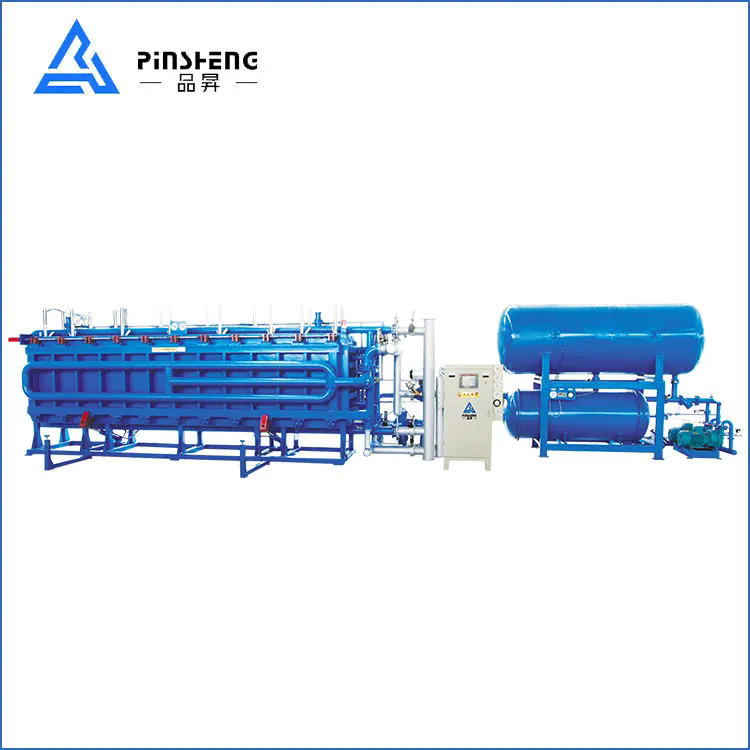Unlocking Efficiency: The Role of Block Moulding Machines in Modern Manufacturing
2024-10-11
In today’s fast-paced manufacturing landscape, efficiency and precision are paramount. One technology that has significantly contributed to enhancing production capabilities is the block moulding machine. This blog will explore what block moulding machines are, how they work, their benefits, and their applications across various industries.
What is a Block Moulding Machine?
A block moulding machine is a specialized piece of equipment used to produce concrete blocks, bricks, and other types of moulded materials. These machines are designed to create uniform shapes and sizes, making them essential for the construction and building materials industry. Block moulding machines can handle a variety of materials, including cement, sand, and aggregates, to produce durable and high-quality products.
How Block Moulding Machines Work
Block moulding machines operate through a systematic process that involves several key steps:
1. Material Preparation: The raw materials, typically a mix of cement, sand, and aggregates, are prepared in precise ratios to ensure optimal strength and durability.
2. Mixing: The prepared materials are mixed together to create a homogeneous concrete mixture. This process often involves using a concrete mixer, which ensures that the ingredients are thoroughly blended.
3. Moulding: The mixed concrete is poured into moulds designed to form specific block shapes. The block moulding machine uses hydraulic pressure or vibration to compact the mixture within the moulds, eliminating air pockets and ensuring solid formation.
4. Curing: After the concrete is moulded, the blocks need to cure for a specified period. This process allows the concrete to gain strength and durability, typically achieved by maintaining appropriate moisture and temperature conditions.
5. Demoulding: Once cured, the blocks are removed from the moulds, ready for packaging or further processing.
6. Quality Control: Throughout the production process, quality control measures are implemented to ensure that the blocks meet industry standards for strength, size, and appearance.
Benefits of Using a Block Moulding Machine
1. Efficiency and Productivity: Block moulding machines can produce a large number of blocks in a short time, significantly increasing productivity compared to manual methods. Automated systems can operate continuously, further enhancing output.
2. Consistent Quality: By using precise measurements and automated processes, block moulding machines ensure that each block produced is uniform in size and strength, reducing the likelihood of defects and inconsistencies.
3. Cost-Effective: Investing in a block moulding machine can lead to substantial cost savings over time. The high output rates, combined with the reduced labor requirements, can lower production costs significantly.
4. Versatility: These machines can produce various types of blocks, including hollow blocks, solid blocks, and interlocking bricks, catering to diverse construction needs and preferences.
5. Environmental Benefits: Modern block moulding machines can incorporate recycled materials into their production processes, contributing to more sustainable manufacturing practices. Additionally, concrete blocks have excellent thermal properties, helping to improve energy efficiency in buildings.
Applications of Block Moulding Machines
Block moulding machines find applications in various industries, including:
1. Construction: The primary use of block moulding machines is in the construction industry, where they produce concrete blocks for building walls, foundations, and other structural components.
2. Road Construction: These machines are also used to create concrete blocks for road barriers, paving stones, and other related products.
3. Landscaping: Interlocking bricks produced by block moulding machines are popular in landscaping projects, providing attractive and durable solutions for pathways, driveways, and outdoor spaces.
4. Manufacturing of Precast Components: Block moulding machines can produce precast concrete components used in various construction applications, such as beams, columns, and walls.
5. Civil Engineering Projects: In civil engineering, block moulding machines play a crucial role in producing materials for infrastructure projects, including bridges and tunnels.
Conclusion
Block moulding machines are indispensable tools in the modern manufacturing landscape, providing efficiency, precision, and versatility. Their ability to produce high-quality concrete blocks and bricks makes them essential for the construction industry and various related fields.
As technology advances, block moulding machines continue to evolve, incorporating features that enhance performance, sustainability, and user-friendliness. Investing in a reliable block moulding machine can significantly improve production capabilities, ensuring that businesses stay competitive in today’s demanding market.
In summary, whether you are a construction company looking to improve your material production or a manufacturer seeking to expand your capabilities, a block moulding machine can be a valuable asset that unlocks new levels of efficiency and quality. Embrace this technology, and watch your manufacturing process transform!



